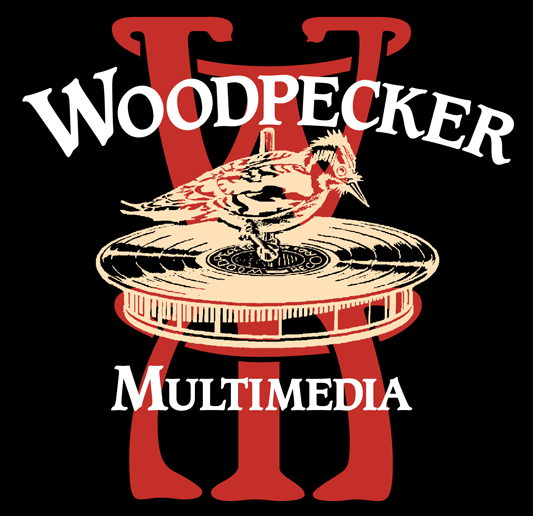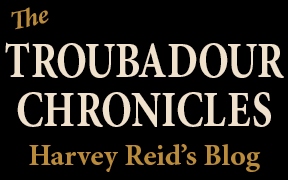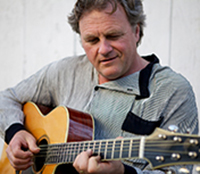 H
H 


|
|
Advice For Musicians Making a Recording
"I have now made 32 recordings, and all of them have made money except one, and I am still at it after 36 years, so I guess that sort of qualifies me to expound on this subject. I am assuming that any one who is already making successful recordings would not be reading this, so it is targeted more at the beginner. I just listened to a Sam Kinison record, and his voice is shouting in my ears, so if this sounds slightly harsh, I apologize. It is meant to help and to encourage people to record their music. (HARVEY REID 2003) First and foremost, if you want to "do something with your music," one of the best things you can do for your career is to make a good recording. When someone suddenly "appears" in a music scene and has a buzz, there is usually a good recording behind it. There are many definitions of what a good one is, but if you make one, it can help you immeasurably and it can open doors you did not know existed. If you make a bad one, it does not necessarily sink your ship, and the list of people who have recovered from a lousy first recording and gone on to do great things is a long one. (I will refrain from sharing my list of great artists who made dreadful first recordings.) When you are an emerging artist trying to make a mark in the world, it does you no good to spend your precious time, money and wear and tear on your friends to make an unsuccessful recording. This is all sort of obvious, but worth saying. Having a good promo package helps, and being young and attractive helps, and being a great talent helps, and being persistent and pushy and beleiving in yourself is incredibly helpful. But none of them helps that much if you make a bad record, and none of them helps you as much as making a good one. Anybody can make a bad record, even if they are good artists. It's a lot like getting your picture taken-- a bad picture might just be a bad picture, and it might not mean that you are unattractive. It takes sometimes rolls of pictures to get a good expression on your face to last for 1/32 of a second, and it is very hard to play a 4 minute song into a tape machine perfectly. I have done as many as 43 takes of a song. Elvis did too. Go listen to all the takes he did-- they have made records of all his outtakes-- it's painful but educational. Recording can be a lot like a long, slow-motion photo shoot, where you are trying to look natural while at the same time trying not let on that you are struggling to do it.
Get involved in all the decisions. There are a lot of tough decisions, like choosing mikes and mike placement. If you don't get involved in making those decisions, they can be easily made in a way you will wish you could change later. In fact, if you let someone else make the decisions, you can end up in a no-win situation. If the recording succeeds and you made the calls, there is no better feeling. If it succeeds and you did not, then perhaps you are getting known for something you are not. If it fails, and you did not make the decisions, it fails twice because you won't have the feeling of "Oh well, I did my best and it did not do that well." You'll be haunted by wondering what would have happened if you had done what you wanted to do. Choosing the best takes, or selecting the songs on your recording is a tough job, as is creating the song order, the title, the art work, cover photos, typefaces, color, package, etc. (Song order is getting less important, now that "shuffle" is so often in charge.) I can't tell you how many times I think the best songs on somebody's reording are the ones at the end, that they were unsure of. The "radio ready" songs at the beginning of a lot of records are quite often much less "listenable" than the ones that might reveal more of the artist's feelings. It's very hard to evaluate your work. Listening back and finding the best take might be the hardest part of recording, especially when you do it yourself. Some people are better at this that others. Listening to yourself all day every day for weeks is like living in a house where there are huge photos of you on all the walls. One reason why I have succeeded in making recordings is that I seem to have a strong stomach for listening back and evaluating my recordings, and I seem to be able to detach myself from the process better than others. (My wife Joyce Andersen is a stellar musician, for example, and is often very bad at evaluating her recorded work.) It's easy to be wrong and to think that a take is the keeper, and it's just as easy to miss the best one. The more takes you do, the more takes you have to listen back to and compare. Once you have heard 15 takes of yourself doing the same song, it's easy to lose all perspective and stop liking the song. Friends and family may well be of no assistance either. I have sent 5 trusted friends a CD with 5 songs on it, and asked them only to tell me which song they liked most and which one they liked least. None of them agreed on anything, and I did not agree with any of them. MYTH - The 1st take is ultra-important. It is possible to blast out an amazing perfomance, but if you record a lot, you may come to find it's better to ease into it and do a few tentative takes to make sure the mikes are placed right and make sure you like the arrangement and the key and the groove before you dig in and try to do an incredible performance. I think Take 3 and Take 4 are the most common keepers for me, though I often take longer because I often finish writing a song as I record it, so I can listen to the structure and do things like vote on what kind of intro or tag to put on. Before I put my heart into a take I want to know that I have it in the right key, and that I like the tempo, etc. MYTH - Overdubbing and editing can fix most problems. Especially if you are in multi-track mode, a high percentage of musicians make the classic error. If you do your solo track first, and it is not that great, then you or your engineer (you will be lucky to have a real producer) will say "That doesn't grab me, it needs something." Then you will spend hundreds of dollars or dozens of hours adding bass and lead guitar and harmony vocals to something that was not that great to start with. Covering yourself up is the last thing you need to do with a first recording. You are trying to show yourself. Play the song better. Re-arrange it. Do a different song. Find a way to make it work, or you should not be recording. Which is why you should find a way to make it work at home first. If you can make a work tape of one of your songs, by playing and singing right into a tape recorder or even a laptop, that sounds pretty good to most people, then you have something. The classic error situation gets another level worse when you realize you just spent $500 working on producing a song, and it still doesn't quite work, but your financial investment is so great that you have to keep it and move on. You can do a similar thing laying down a click track and putting all the stuff on before you do your part-- you have already spent so much money you feel like you have to go through with it. Recording engineers and the small-town studio guy always encourage you to overdub and add more stuff, and you should not listen to them. Somebody who hears you at an open mike and buys your CD will not want the drums anyway. They already liked what they heard-- that's why they want to buy your recording. They don't need or want it to be different. And if the promoter hears your CD and books you and then you show up to play and sound different-- that does not help much either. MYTH- You will get discovered somehow- Rather than operating under the assumption that you will get discovered and your career will magically blossom, you are almost certainly better off operating as if this will not happen. Don't spend all your money making a record to compete with commercial recordings if you are a beginner. Don't model your career after the handful of lucky famous people who got famous without effort. If you are an "unknown artist" then your recording will do two things for you primarily: 1) you will send it to radio and promoters or club owners who will decide whether or not to play it, or whether to book you 2) you will sell it to people who heard you perform live. In both these cases, it does you no good whatsover to have a recording that does not sound as close as possible to what you sound like on stage. It sounds harsh, but nobody wants to hear your friends play bass. Unless you are making a firm commitment to always performing with a bass player, there is no need to have one on your CD. "Commercial airplay" is unthinkable for an unknown artist with a self-produced recording in today's syndicated, corporate conglomerate world. Save your time and money. You will almost certainly not get on commercial playlists, and you will only risk looking bad because your drum sound is feeble compared to Garth Brook's production, and you simply will not be able to get a "sound" on your recording like they get in the big-time studios unless you work with a big-time producer. There is a whole world of technical things like reverb and compression and how to get a drum sound, and the chances of you and your small-town studio-owner/wannabee record producer really making something that sounds big-time are extremely small. However, if you have been performing for your friends, and something is happening when you do, and you are pulling them in with your music, then all you have to do is capture that magical thing that happens when the music is right. That's all you are really qualified to do, and that's all you should do.
If you get frustrated, stop. I only do another take if I am enjoying it, and if I am sure I can do a better one. As long as they keep getting better I keep recording. When they start falling apart and getting worse, stop or switch to a different song. One of the most enduring things I have ever recorded was something I had no intention of recording, and I was just trying to settle down after a frustrating hour trying to record something else, and I wanted to sing this new song I had just learned, to make myself feel better. Luckily I told the engineer to roll it, and 28 years later people tell me how it is their favorite thing I have ever done. This sort of thing happens sometimes. Don't show up without a plan, but don't be afraid to scrap the plan and lunge for something that moves you at the moment. Never stop in the middle of a take, or slam the guitar down before the final fade is done. Wait until the fade is done, then swear and say it sucked. You will be surprised how often you find out it was your best take. Just because it felt great does not mean it was a great take. You might have to do it again. There are a lot of false positives and false negatives in the recording process. A lot of things you think of as mistakes, others will not even notice. Avoid marathon recording sessions I never schedule more than 3-4 hours at a time in the studio, and always leave a few days between sessions to listen back, evaluate how I did, and plan for the next one. Forget that rock & roll movie hype about working around the clock for a week and grinding out a masterpiece. It has been done, but it is not likely, and the story is more romance than truth. Take a few weeks and you'll avoid more mistakes. Your ears get tired after 3-4 hours anyway, and it is really easy to make bad mistakes and not notice them during a 12-hour marathon session.
See if your recording passes the "gift test." There is no better sign that you have made a good recording than if someone gets hold of one, and then wants to get some more as gifts. I would not spend money promoting a recording this has not happened to.
WOODPECKER MULTIMEDIA
|